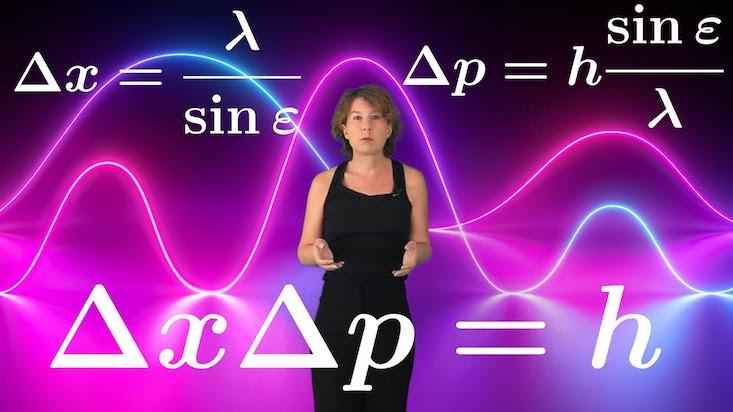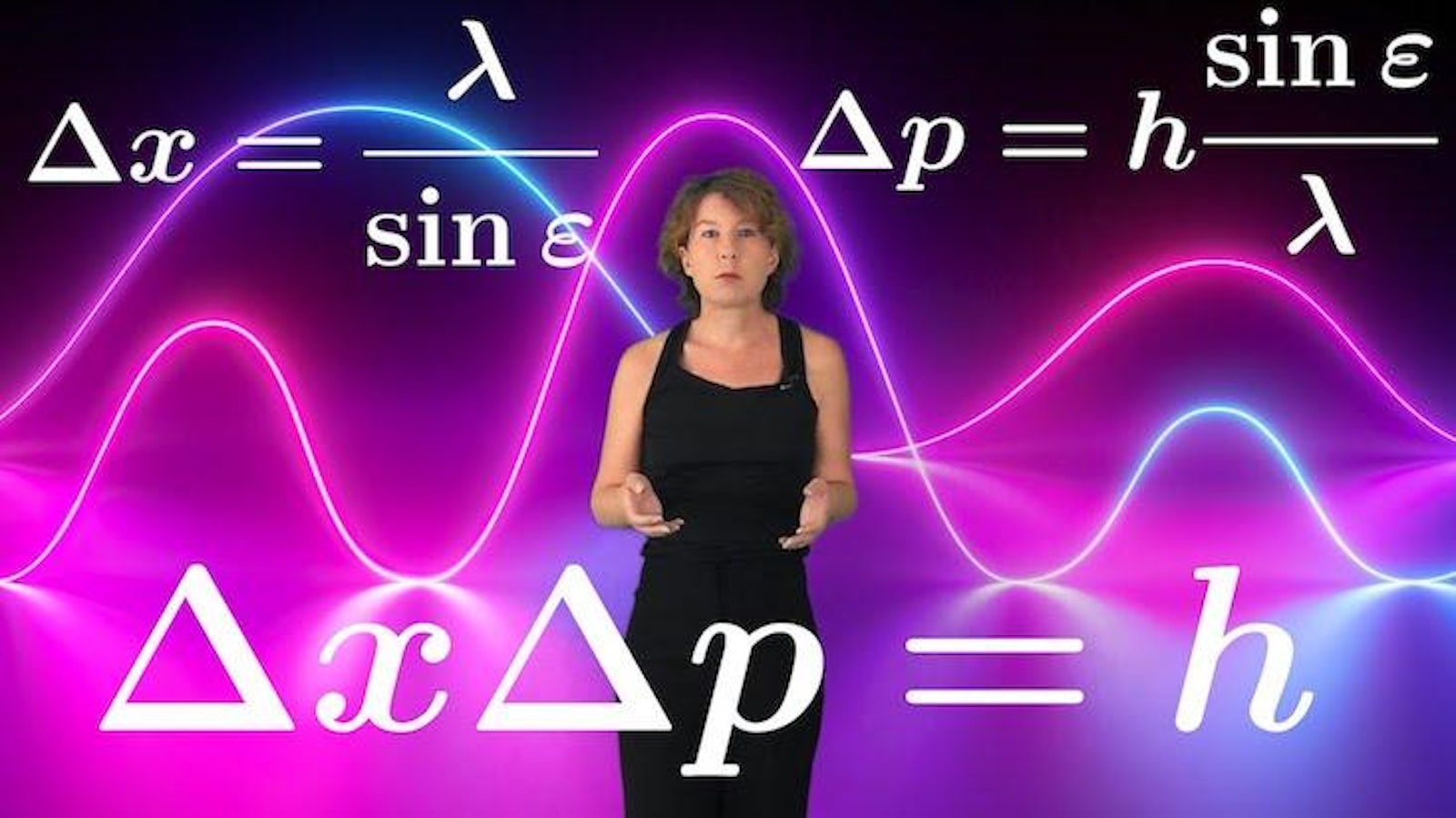
Science without the gobbledygook.” That’s the name, and promise, of Sabine Hossenfelder’s YouTube show. The German theoretical physicist, whose main gig is as a Research Fellow at the Frankfurt Institute for Advanced Studies, has attracted over 300,000 subscribers. Her videos—some of which are amusing music videos, like her cover of Monty Python’s “Galaxy Song”—have been viewed more than 22 million times.
In her 2018 book, Lost in Math: How Beauty Leads Physics Astray, she called out her colleagues for wasting time and resources on bad ideas. On YouTube, she’s similarly spirited—her channel’s description reads, “Sabine talks straight about science: No hype, no spin, no tip-toeing around inconvenient truths.” And she isn’t afraid of what you might call provocative nuance—she titled one of her videos: “Flat Earth ‘Science’—Wrong but not Stupid.”
Having a chat with Hossenfelder about her passion for talking science was a pleasure. I share some of her feelings about how enriching a scientific outlook can be, as well as her ambition to clear up misconceptions new (like whether the simulation hypothesis is scientific) and old (like whether free will exists). I started by asking her why she launched a show on YouTube.
Why did you start a YouTube channel?
I feel like it’s part of my profession as a scientist to pass on knowledge. Public outreach comes more naturally to me than teaching. I enjoy it more. To some extent, outreach is not generally acknowledged as being part of my profession. If I were teaching, I could collect credits, and I could put this interview in my CV, and it might help me get a job. But with a YouTube channel it’s more like, OK, she has this weird hobby—I think physics and other things might be interesting to other people. That’s certainly the feedback I get. As abstract as it is, physics enriches your life.
If you don’t understand math, you don’t really understand physics.
The popularity of your blog on physics, Backreaction, helps demonstrate that. Has your approach to public outreach changed since you’ve moved to YouTube?
I started writing a blog in 2006. I was working mostly on particle physics and quantum gravity, and most of the audience was interested in reading about them. But over the years my interests shifted. I drifted more toward philosophy, the foundations of physics. I’m now doing more astrophysics, dark matter. The problem with blogs is it becomes hard to find a new audience. Every time I write about something that doesn’t fit the previous niche, no one would read it because they’d be, “Oh, what’s this? This is not what I signed up for.”
Is it easier to find new audiences on YouTube?
YouTube doesn’t entirely solve the problem. Its algorithm tries to classify your channel and look for an audience. But it’s more tied to the individual thing that you produce, and tries to find an audience for it. My YouTube audience is more aligned with what I’m interested in—How do we use science? How does it work?—instead of this very narrow particle physics stuff. For example, there’s this myth that you need quantum computers because, otherwise, the Chinese will be able to crack all our security codes. This is wrong. I know a lot of physicists working in closely related disciplines who didn’t know this, so I thought I should make a video about it.
Do you think your audience can really understand what you’re saying about physics?
In physics, all our theories are math. If you don’t understand math, you don’t really understand physics because you can’t follow the logical conclusions. But if you’re fine to be told that if I make the following assumptions, then this follows, then you can get some understanding of the logic. A problem is analogies—comparing the real thing with something else. I struggled with that a lot when I was a teenager trying to understand special relativity. Books on it talk about space shuttles and rockets and lasers bouncing on mirrors. If you take some of these ideas and try to generalize them, it doesn’t work. You run into contradictions because you didn’t understand or weren’t even shown the underlying principles. These are fancy ways to explain math. But if you only use these descriptions and try to apply them for something else it will almost certainly go wrong.
How do you make sure you’re communicating science effectively?
It’s important to get rid of the terminology. It’s not that people don’t understand it. If you explain a concept to them, what it means, they will understand. But the more of these words you carry around with you, the larger the cognitive load. If I’m listening to or reading something in a discipline which is not my own, by the time you have three, four, five, six new words that you have to keep in mind, the more likely it becomes completely incomprehensible. There’s always some balance to find between simplification and oversimplification. I hope that most of the time I do it correctly.
Have a tip you can share for making professional-looking YouTube videos?
There is a certain YouTube style. YouTube videos tend to have a lot of cuts, not a lot of breathing. If you’re not used to it, people think it looks weird—that person isn’t breathing anymore. But that’s the way YouTube works. You have to learn it and then you get used to it. It was not particularly hard to learn. I’ve worked on quantum gravity, so I can learn how to do cuts for YouTube.
Anything amusing you can share about your life as a YouTuber now?
The video-production process is terribly boring. I’m standing in front of a green fabric pinned to the basement wall, looking into a teleprompter. One of the reasons that people like my YouTube channel, as stupid as it sounds, is that my English is not good, which forces me to speak in simple sentences using words that do not contain too many syllables. But sometimes words come up that I can’t pronounce properly, and then for 20 minutes I’ll be trying to say “quantum optical coherence tomography.” I’ll laugh about myself because, dammit, I can’t get the stupid words out.
Brian Gallagher is an associate editor at Nautilus. Follow him on Twitter @bsgallagher.






























